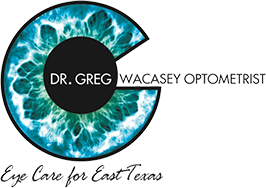
When you have a child, you want them to have the best start to life possible. One way to do that is to ensure they have a good start with their health. Many doctors specializing in care for infants and children focus on one aspect of children's health. Among them, a pediatric eye doctor is very important for your child.
Getting your child a pediatric eye doctor is an essential part of your child's health care. Children's eye health is especially sensitive when they are growing up. Their eyes are still developing, and most conditions start to emerge during this time. A pediatric eye exam is the best way to get a head start ensuring a good future.
Why Is a Pediatric Eye Exam Important?
A pediatric eye exam is an eye exam that an eye doctor performs on your child. Usually, it is performed by specialized pediatric eye doctors. The doctor performs specific eye exams that work for your child at various ages. Experts advise your child to have their first eye exam at six months and the second at about a year. After the first year's exam results, the eye doctor will determine how often your child should have an eye exam.
When your child's eyes are developing is the prime time to correct any issues. While they are still growing, you can take steps to address any vision issues they may develop. You can control or slow down the progression of conditions like myopia. Issues like strabismus and lazy eye can also have a connection while their visual structures are still malleable.
What Should You Expect in a Pediatric Eye Exam?
As mentioned above, several eye exams can happen in your child's life. In each stage, the eye doctor may perform different tests based on the expected development of your child's visual abilities. Here is what you should expect at some of the first stages:
Infants
The first twelve months after your child is born are critical in developing your child's visual systems. Within this time, your child's vision will experience rapid growth. However, they will only be able to focus on short distances in the first few months, usually about ten inches.
As they grow, they will start to focus on more considerable distances. Their eyes will begin to team, grow color vision, and develop depth perception.
What Does the Doctor Check?
At this time, the eye doctor will look out for the following conditions:
Eye focusing and movement.
Peripheral vision errors.
Refractive errors – astigmatism, hyperopia, myopia.
Overall ocular health – ruling out various eye conditions and diseases.
What Tests Will the Doctor Perform?
As a child cannot read charts or numbers at this stage, the doctor will use different tests. They will use light to test their pupil health. They will check the child’s ability to fixate on objects using a toy to grab their attention. They may also dilate your child's pupils and use an ophthalmoscope to examine their eye structures.
For more on what to expect during a pediatric eye exam, visit Dr. Greg Wacasey at our office in Longview, Texas. Call (903) 403-2020 to book an appointment today.









